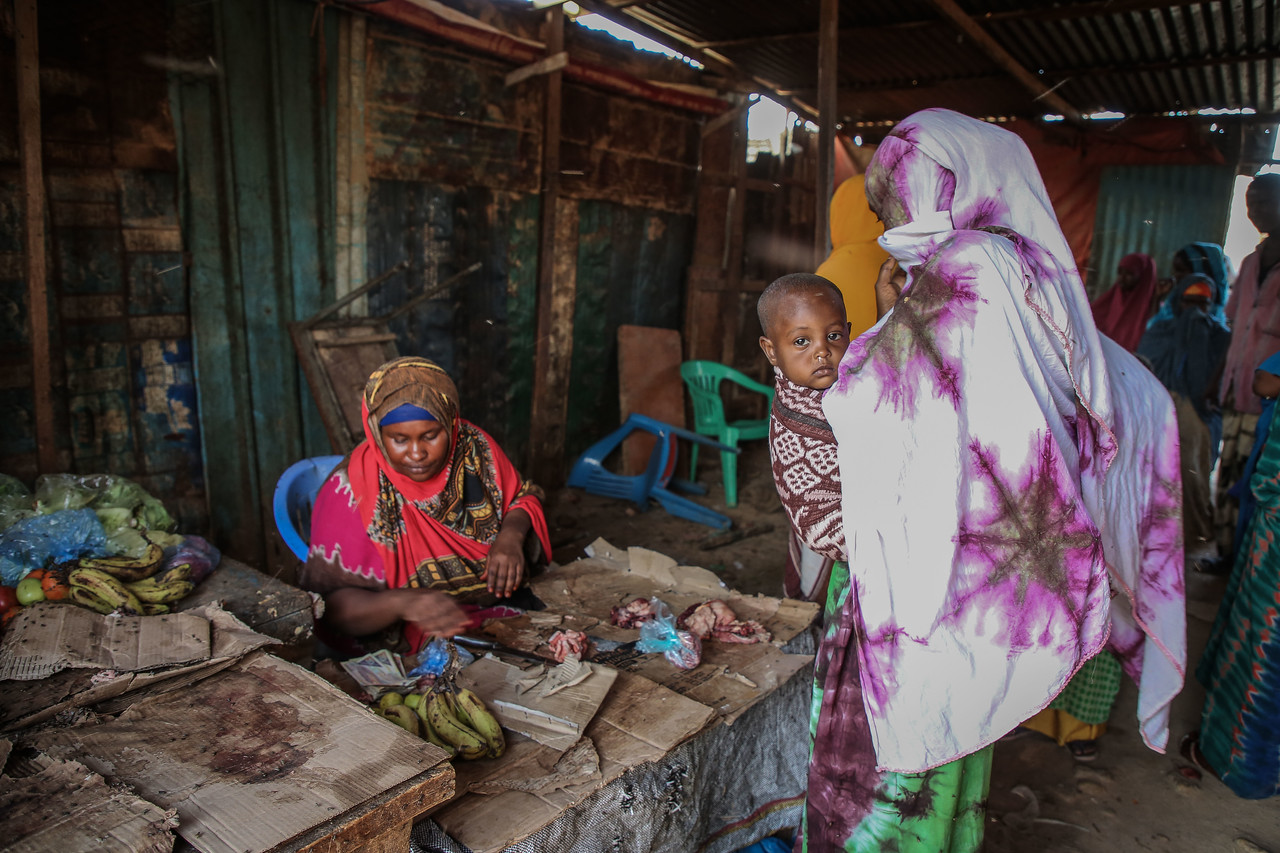
A cough that kills people: Views of Somalia's displaced families on Covid-19

As of Tuesday, April 21, Somalia has confirmed 237 cases and eight deaths, and is braced for the widespread impact of the virus, particularly on more than 2.15 million with insufficient shelter, and 2.7 million without adequate access to water and sanitation facilities.
"2.6 million people in Somalia have already been displaced by conflict or climatic shocks. How do we ask millions of people to ‘stay at home’ and ‘wash your hands’ when they live in congested makeshift shelters and are rationed meagre water supplies each day? How can we encourage social isolation when people rely on daily wage labour to meet their basic needs?" says Catriona Loughran, Norwegian Refugee Council's Global Media Adviser.
As the Covid-19 pandemic takes hold in Somalia, government agencies, with support from humanitarian and development actors, have made considerable efforts to contain the risk of virus-spread in the country. Border closures, curfews, restrictions on gatherings and quarantine measures have all sought to limit movement while mass messaging by mobile phone, radio, social media and through influential community leaders has focused on handwashing, hygiene and social distancing practices.
But the internally displaced families are saying that their only way is to face the virus as many don not have adequate water.
"We have nowhere to escape the virus and we have no way to control it. There’s a scarcity of water in the camp. Bottled water is expensive. We used to buy it for almost $2 but it is now sold at $3. We have no soap to wash or disinfectant, we have nothing," says Halia Abdia Mumin who lives in a displaced camp in Garowe, the administrative capital of Puntland.
A recent NRC Somalia survey found that lack of hygiene facilities and food access are of ‘main concern’ to displaced Somalis. The majority of respondents (92 per cent) said school closures were affecting their daily life as well as market inflation (67 per cent), community panic (64 per cent) and work stoppages (60 per cent).
On issues relating to the capacity of communities to prevent the spread of Covid-19, congestion and overcrowding was identified most, by 84.8 per cent of respondents.
A lack of hygiene items and facilities was the next most prevalent concern, identified by 81.7 per cent of respondents, followed by a lack of access to testing and treatment services (73.1 per cent), low levels of awareness about the virus (72 per cent) and a lack of water for handwashing (71.3 per cent).
Somalia has a population of 12.3 million, 2.9 million of whom are in need of basic water, sanitation and hygiene (WASH) services. Around 2.6 million people are currently displaced. An average of 928,000 people were displaced each year since 2017; 72 per cent due to the impact of floods or drought, 25 per cent due to conflict.
An estimated 80 per cent of those displaced arrive into urban areas, causing the expansion of Somalia’s cities and placing additional pressure on scarce resources.
The country has two healthcare workers per 100,000 people, compared with the global standard of 25 per 100,000.
"Like many countries in this region, Somalia is resilient and resourceful, but it cannot be left to contend with this crisis alone. For the global community to take hold of a global problem, we must find and fund fitting global solutions.” adds Loughran.
Despite considerable containment and preparedness efforts, the country has extremely limited institutional capacity for virus detection, tracing, surveillance, laboratory testing, case management and clinical care.
(HORN OBSERVER)
Leave a comment
- Popular
- Rated
- Commented
04/11/2021 - 11:05:02
12/03/2023 - 22:58:08
22/01/2023 - 11:24:06
13/12/2015 - 09:27:08
01/03/2021 - 09:00:37
Opinions
17/04/2024 - 22:46:39
08/03/2024 - 02:04:01
Politics
22/04/2024 - 15:18:30
17/04/2024 - 22:46:39
Terror Watch
22/04/2024 - 23:39:45
09/04/2024 - 12:24:06
Press Releases
18/04/2024 - 21:29:03
13/04/2024 - 10:40:06
 0
0 


































A cough that kills people: Views of Somalia's displaced families on Covid-19
GAROWE (Horn Observer) For countries like Somalia, Covid-19 isn't just a health crisis, it's an economic juggernaut. Even before the outbreak gathers speed, people are feeling the pinch of inflation, widespread job losses and fear that meas